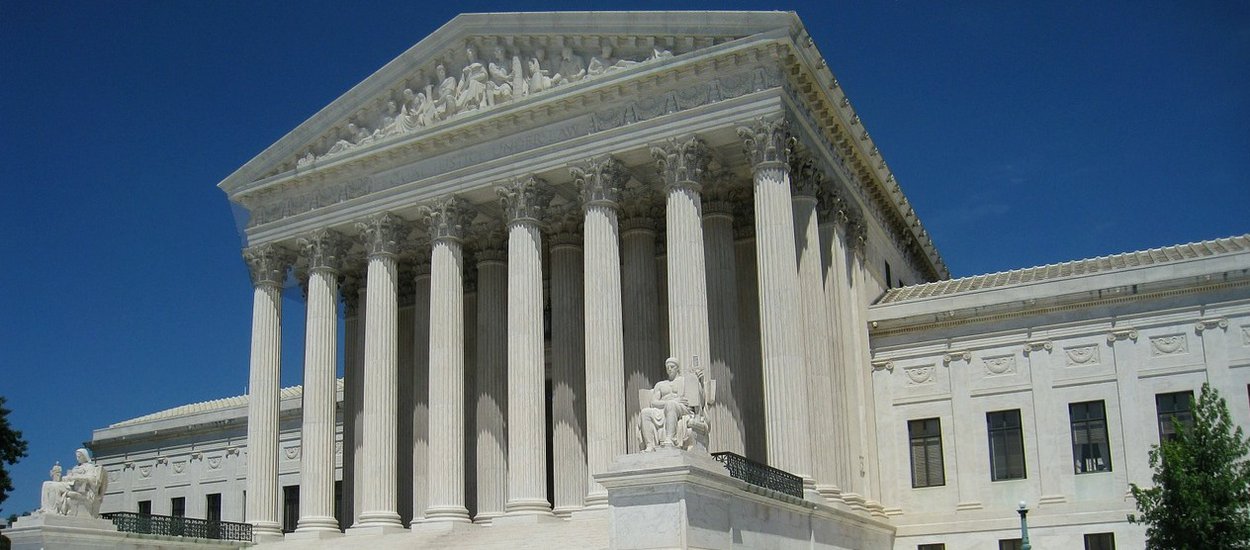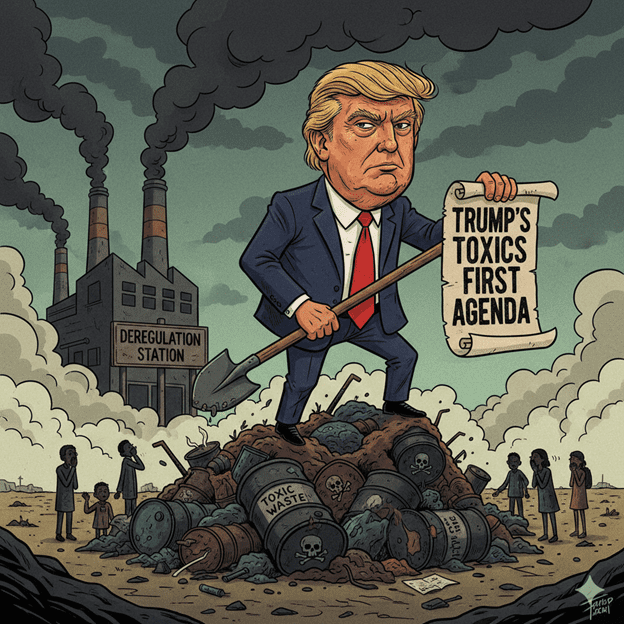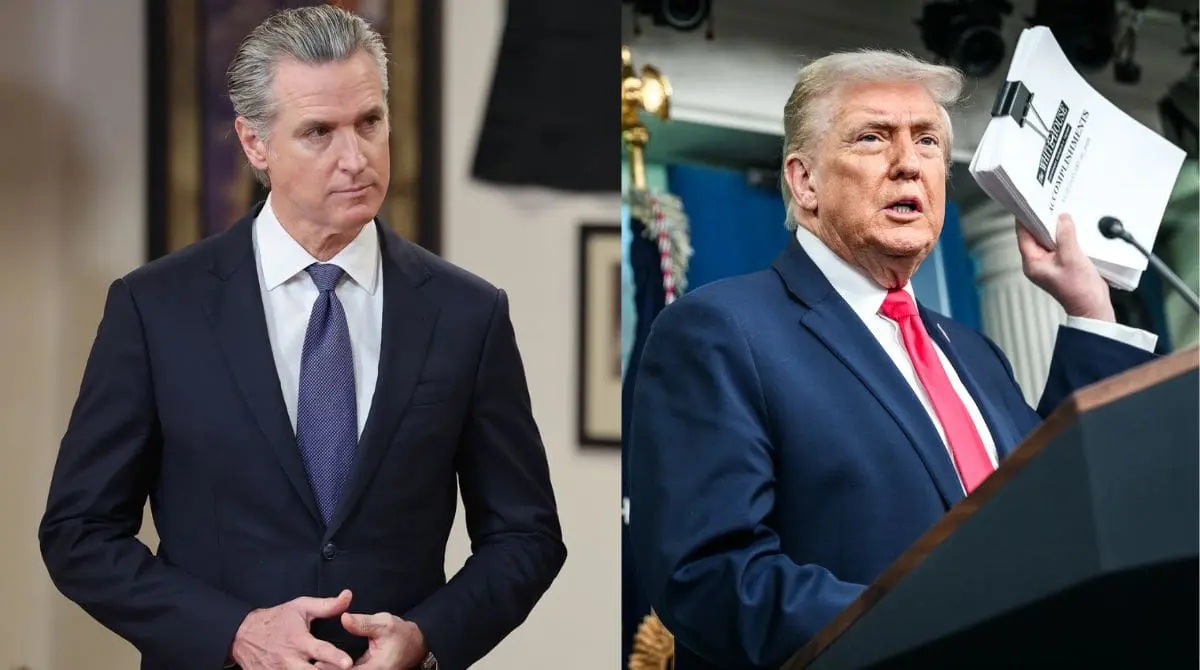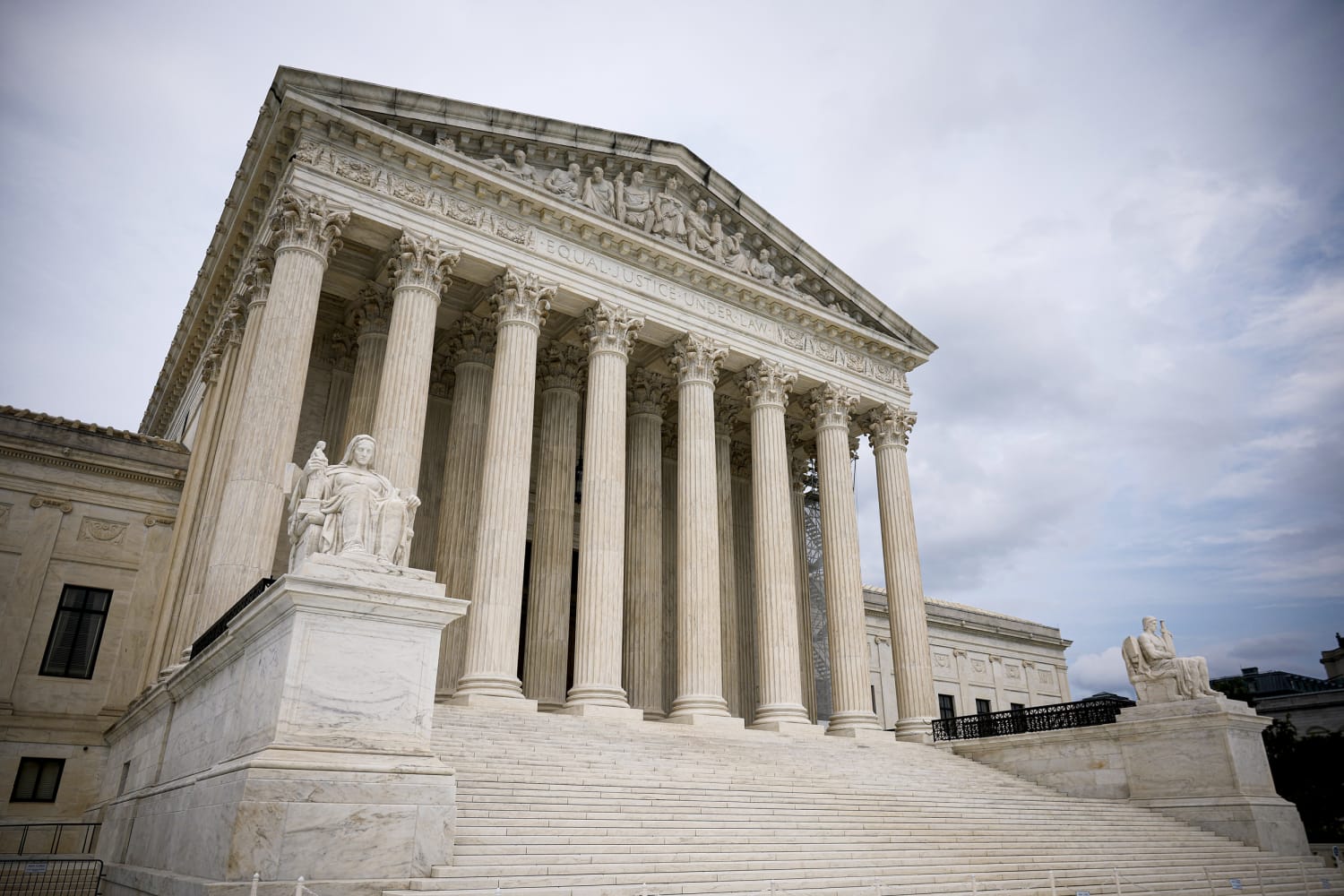Trump Administration
Five Lessons from the Tariff Case
What can the case teach us about litigating environmental cases against Trump?
Learning Resources v. Trump, the recent tariff ruling, doesn’t say anything direct about environmental cases. But there are a series of useful lessons for environmental litigators. One obvious one is that the conservatives aren’t all “in the tank” for Trump (though Alito and maybe Thomas seem have gone pretty MAGA). Trump’s nasty insults of the conservatives who ruled against him probably won’t bring them back onto the Trump train. His effusive praise for the three conservatives who voted for the tariffs may even increase frictions within the supermajority. Here are five more lessons.
CONTINUE READINGPolicies on the Bus Go Round and Round
The Drain is a weekly roundup of environmental and climate news from Legal Planet.
A year ago, the transportation manager of Northshore School District, outside of Seattle, wrote to EPA Administrator Lee Zeldin pleading with him to release frozen funding she was owed for new school buses. “We need your assistance to complete these projects and lift the financial burdens school districts are facing due to the delay in …
Continue reading “Policies on the Bus Go Round and Round”
CONTINUE READINGTrump’s Ratepayer Protection Pledge: More BS on Electricity Prices
In his State of the Union address, President Trump announced a new “ratepayer protection pledge” from technology companies.
Last night, in his State of the Union address, President Trump announced a new “ratepayer protection pledge” from technology companies as his latest effort to respond to rising electricity prices across the country. In his brief remarks on the pledge, the President said that it “obligated” the technology companies to provide for their own power, …
Continue reading “Trump’s Ratepayer Protection Pledge: More BS on Electricity Prices”
CONTINUE READINGHas Trump Actually “Driven a Dagger Through the Heart” of Climate Policy?
Don’t jump to conclusions based on the Administration’s spin operation.
there’s a good chance that the repeal of the Endangerment Finding will be reversed by the courts. That would ground federal climate policy even more firmly in the law, so the Administration is taking a gamble. Saying they’ve one is as premature as a roulette player who’s just put all their chips on one number announcing that they’re now rich before the wheel has even started turning. Even if the courts do uphold the repeal, a lot will depend on just what legal theory the judges adopt. Some legal theories would slam the door on efforts by future Democratic presidents. Others would leave room to move forward.
CONTINUE READINGMore Pesticides Please!
Trump’s ‘Toxics First’ Agenda continues with a new executive order mandating the production of glyphosate . . . as a matter of national security!
Late last Wednesday, sandwiched between all of the news about the repeal of the endangerment finding and the Supreme Court’s ruling on the Trump tariffs, the White House issued a new Executive Order invoking a Korean War era statute, the Defense Production Act of 1950, to ensure that chemical companies can continue to manufacture a …
Continue reading “More Pesticides Please!”
CONTINUE READINGWhat Happens to State Regulation if the Endangerment Findings are Gone?
Answer: State authority wouldn’t suffer from the change and might expand in some ways.
If the Trump EPA successfully repeals the endangerment findings for vehicles and stationary sources, states will be the only resort for climate regulation. A key question is how the repeals would impact state power to regulate carbon emissions. The bottom line answers are: (1) the impact on state power regulate tailpipe emissions seems unclear but could be positive, (2) there would be no effect on state power to regulate stationary sources like power plants, and (3) plaintiffs suing oil companies would probably benefit. The detailed analysis is below.
CONTINUE READINGPolitical Extinction Risk
Species may be vulnerable not just to changes in climate or habitat, but also to changes in politics
Conservation biologists have long studied many different kinds of risks to endangered species: Risks from climate change, or from habitat fragmentation, or from having small populations for extended periods of time. But there is another key component of risk that has not been analyzed yet, but may matter as much or more to many endangered …
Continue reading “Political Extinction Risk”
CONTINUE READINGThe Tariff Decision and the Major Questions Doctrine
The scope of the doctrine is even more confused now than before.
The tariff decision is good news in terms of checking arbitrary presidential actions, but the opinions fell short in one important area. An important argument against the tariffs was based on the Major Questions Doctrine (or MQD). That doctrine applies whan a government action has “vast political and economic significance.” If the government claims that Congress gave it the power to take such an action, it must point to clear statutory language. The doctrine is controversial in part because no one is quite clear on its basis or when it applies. The tariff decision only made that worse. The Justices took many different positions on the doctrine, deepening the confusion.
CONTINUE READINGThe Most NIMBY Man In The World
As ICE moves to warehouse tens of thousands of immigrants, can locals fight back?
Good piece in the Grey Lady on Wednesday about Trump voters suddenly deciding that some of his policies aren’t so great after all. ICE is trying to build huge detention facilities in order to drag legal immigrants off the streets — specifically, those who are waiting for asylum decisions and those waiting to receive their …
Continue reading “The Most NIMBY Man In The World”
CONTINUE READINGThe Overlooked Precedent Supporting EPA Regulation of Greenhouse Gases
Even Roberts and Scalia agreed that Mass. v. EPA is the law
An important precedent has been overlooked in the coverage of the Trump EPA’s repeal of the 2009 Endangerment Finding. The 2009 finding relied was based on , in which the Court had held that the Clean Air Act covers air pollution and directed EPA to determine whether greenhouse gases are harmful. One reason to worry about the litigation is that the conservatives Justices all dissented from Massachusetts v. EPA over the repeal. But there’s another equally important precedent: American Electric Power v. Connecticut (AEP). That ruling was joined by Chief Justice Roberts and Justice Scalia, so it may carry more weight.
CONTINUE READING











